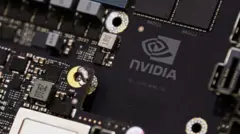Cryptocurrency Gains Momentum
The cryptocurrency sector experienced a significant turnaround in 2024, driven by the US presidential election results. Donald Trump’s victory brought optimism to the industry, as he’s perceived as more favorable to cryptocurrency than previous administrations. Trump’s announcement to nominate Paul Atkins, a pro-cryptocurrency advocate, as the potential chairman of the Securities and Exchange Commission (SEC) boosted Bitcoin’s value to over $100,000 in December. Experts believe this could lead to proactive regulation and the removal of restrictive guidelines like SAB 121, which has hindered banks from providing cryptocurrency services.
The Rise of Personalized AI
As AI technology advances, it’s becoming increasingly integrated into our daily digital lives through smartphones and other devices. Companies like Apple, Google, and Samsung have introduced AI-powered services for photo editing, language translation, and web searches. However, this growing personalization raises concerns about data privacy. For AI to be truly effective, it needs access to sensitive personal information, creating a trust issue with users. Microsoft’s AI development has faced challenges, particularly with its Recall feature, which was criticized for potentially compromising user privacy.
Data Center Expansion
The growing demand for AI is driving significant investment in data centers. Major tech companies like Google, Microsoft, and Meta are expected to invest up to $1 trillion in data center infrastructure over the next five years. In Europe, data center capacity is projected to grow by 9% annually between 2024 and 2028. However, developers are looking beyond traditional hubs like London and Amsterdam due to high property prices and limited electricity supply. Cities like Cambridge, Manchester, and Birmingham in the UK, as well as Prague and Milan in Europe, are emerging as potential locations for new data centers.
Nvidia’s Breakthrough Chip
Nvidia’s latest Blackwell chip, unveiled in March 2024, is set to revolutionize AI processing. Expected to ship in significant numbers in 2025, this chip promises to train AI four times faster and operate 30 times faster than current technology. Major tech companies are likely to secure the first shipments, while others may face supply constraints.



